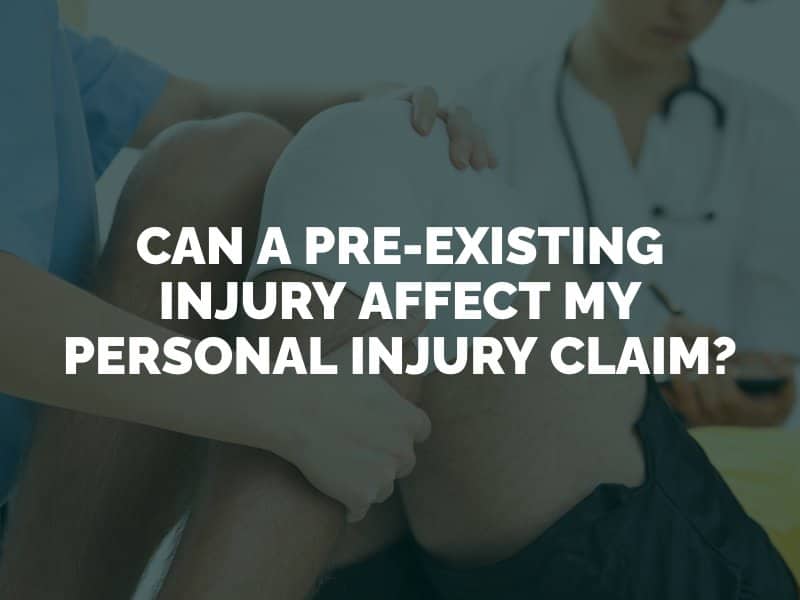If you have been injured due to the careless or wrongful acts of someone else, the law in Colorado may entitle you to financial compensation. If you have pre-existing injuries from before the accident, however, this can impact your claim. An insurance company may try to use your pre-existing injury as a reason to deny or diminish your benefits.

A pre-existing injury is any injury, health condition or illness you had prior to the accident listed on a personal injury claim. Pre-existing injuries can refer to injuries from previous auto accidents, congenital abnormalities and chronic medical conditions. Common examples include:
Regardless of the nature of your pre-existing injury or condition, an insurance company may try to use it against you during the claims process. It is important to recognize how an insurance company might react to your pre-existing injury so that you can prepare yourself to handle the claims process ahead.
As the claimant in a personal injury lawsuit, you have a responsibility to disclose all pre-existing injuries and conditions. Although the insurance company may try to use a pre-existing injury against you, trying to hide it will make things worse. Lying about your pre-existing condition can give the insurance company a valid reason to reject financial benefits.
The insurance company’s goal is to find a reason to minimize or reject your claim. It may try to use your pre-existing injury to argue that the current injury, pain or disability you are claiming is connected to your pre-existing condition, not the accident. If the insurance company succeeds with this argument, you may not receive any financial compensation for your injuries.
A legal doctrine known as the Eggshell Skull Rule works in your favor as a claimant with a pre-existing injury. This rule states that it is a defendant’s obligation to accept a plaintiff as he or she was at the time of the accident. This means even if the plaintiff had a condition that made him or her more prone than the average person to serious injuries – such as a skull as thin as an eggshell – the defendant will be liable for the full extent of his or her damages.
The Eggshell Skull Rule means an insurance company cannot deny your claim based on a pre-existing injury alone. If the accident aggravated your pre-existing injury, you will be eligible for financial benefits for the full extent of how the accident impacted your health.
Likewise, if your pre-existing condition exacerbated your injuries from an accident, you will be eligible for full compensation. The only time a pre-existing injury may bar you from recovery is if you are claiming benefits for an old injury alone, unrelated to the accident.
Upon learning about your pre-existing injury, an insurance company will try to learn as much as it can about your medical history. You may receive a Medical Authorization Request Form from the insurance company. It is important not to sign this form before taking it to a personal injury lawyer in Denver. It most likely grants the insurer access to your full medical records.
Rather than signing any documents given to you by an insurance company, work with an attorney to send the insurer only the medical records that are relevant to your current claim. This can prevent the insurance company from attempting to use a pre-existing condition or injury as a reason to withhold benefits from you.
An attorney can help you work through the complicated details of your case for the best possible outcome, with or without a pre-existing injury involved.